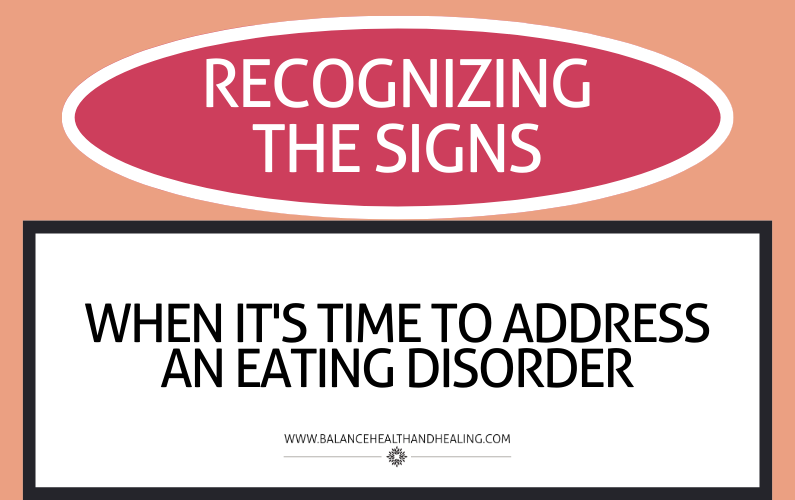Eating disorders are complex mental health conditions that can have severe physical, emotional, and psychological consequences. If left untreated, they can significantly impact your overall well-being and quality of life. Recognizing the signs and knowing when it’s time to address an eating disorder is crucial for early intervention and effective treatment. What are some common indicators that may suggest it’s time to seek help for an eating disorder?
1) Distorted Body Image:
Do you consistently perceive yourself in a body different from what evidence suggests? Do you obsessively focus on specific body parts and engage in excessive body-checking behaviors? These may be signs that an eating disorder is present. This distorted perception can lead to harmful behaviors such as extreme dieting, excessive exercise, or self-induced vomiting.
2) Drastic Changes in Eating Habits:
Extreme and erratic changes in eating habits can indicate the presence of an eating disorder. This might show up in your life as severe calorie restriction, skipping meals, avoiding certain food groups, or rigidly following specific dietary rules. On the other hand, binge eating episodes, characterized by consuming large quantities of food in a short period, followed by feelings of guilt or shame, can also be a red flag. These unhealthy eating patterns often disrupt normal eating routines and your body’s intuitive hunger and fullness cues, leading to feelings of loss of control around food.
3) Physical Signs and Health Complications:
Eating disorders can have significant physical consequences. If you are experiencing weight loss or weight fluctuations, mental fog, fatigue, dizziness, weakness, hair loss, or changes in skin quality, it can be due to disordered patterns of eating. Other physical signs may include irregular menstrual cycles, gastrointestinal problems, or dental issues due to purging behaviors.
4) Emotional and Psychological Distress:
Individuals struggling with eating disorders may experience intense anxiety, depression, irritability, or mood swings. They may also exhibit perfectionistic tendencies, low self-esteem, a preoccupation with the body, or an excessive need for control. If you notice persistent emotional and psychological struggles that revolve around food, eating, and body image, take that as an invitation to address the underlying issues!
5) Interference with Daily Life:
When eating concerns begin to interfere with daily life, including relationships, work or school performance, and social activities, it is crucial to seek professional help. The preoccupation with food, body image, and restrictive behaviors can consume a significant amount of time and mental energy, leaving little room for other important aspects of life.
6) Concern from Loved Ones:
Sometimes, it’s the observations and concerns of family and friends that prompt people to address their eating concerns. If people close to you express worry about your eating habits, physical appearance, or emotional well-being, it’s essential to consider their perspective. Their concern may be an indication that you could benefit from treatment.
Recognizing the signs and acknowledging when it’s time to address an eating disorder is a critical step toward recovery. Eating disorders are serious mental health conditions that require comprehensive treatment, and reaching out for support is an act of courage and self-care. With the right treatment, recovery is possible, and a healthier relationship with food and oneself can be achieved.

